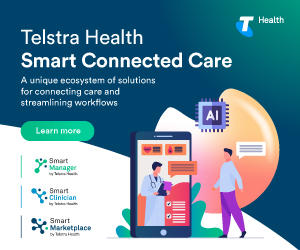What every GP needs to know about the new AMDS program
The Department of Health has recently released its new Approved Medical Deputising Service (AMDS) program, opening up fresh controversy over a clause banning deputisers from writing new scripts without the permission of a patient’s regular GP.
What is an AMDS?
According to the Department of Health, the approved AMDS Program is a mechanism for doctors to obtain clinical experience in the after-hours period. An AMDS is an accredited medical deputising service that holds a Deed of Agreement with Health. The Deed recognised the service as an ‘Approved Medical Deputising Service’ for the purpose of the Program and grants it the right to employ non-vocationally recognised GPs to perform after-hours deputising services under the Medicare Benefits Schedule (MBS).
Why was the program introduced?
The Program was first introduced in 1999 as a response to a decrease in the number of after-hours services being provided by fully qualified GPs in the capital cities. At the same time, the AMDS Program offers clinical experience to doctors who intend to achieve vocational recognition in general practice and increases the available workforce available during the after-hours period.
What do the new guidelines mean?
Under the updated guidelines, an AMDS arranges to perform deputised attendances to patients on behalf of their normal GP. An AMDS can extend the care available to a GP’s patients to cover the entirety of the after-hours period (6pm to 8am Weekdays, from noon on Saturday, and all day on Sunday and public holidays).
An AMDS is expected to meet and maintain minimum standards of conduct that are set out in the Program Guidelines to receive the privilege to employ non-VR GPs with MBS access. This includes adherence to restrictions on direct marketing of services and applying a triaging standard.
Where is the controversy?
Under the new Guidelines, after-hours deputisers will be banned from writing new scripts without the permission of a patient’s regular GP, and Doctors are now agitating for an urgent rewrite, saying patients will be put at risk.
The clause is found in the final paragraph of the 23-page revised terms and conditions for the Approved Medical Deputising Service (AMDS) Program:
“Deputising doctors will only provide prescriptions at the request of the patient’s regular GP. When a patient has run out, and requires it before the next in-hours a deputising doctor may prescribe to prevent significant harm to the patient. No repeats will be issued. Doctors are reminded that pharmacists can provide a patient’s usual medication in an emergency, and then the usual GP can be seen for a repeat prescription.”
Deputising services accused of contravening the guidelines will have 14 days to explain themselves to the Department of Health, and face being stripped of their right to employ non-VR doctors where breaches are “numerous or significant”.
Under the new regime, deputisers will also be required to triage most routine care to daytime GPs and obtain written agreements with practice principals before caring for any of their patients.
When will the Guidelines take effect?
The new Guidelines set the conditions for accredited medical deputising services and non-vocationally recognised GPs to participate on the AMDS Program from 1 March 2018.









